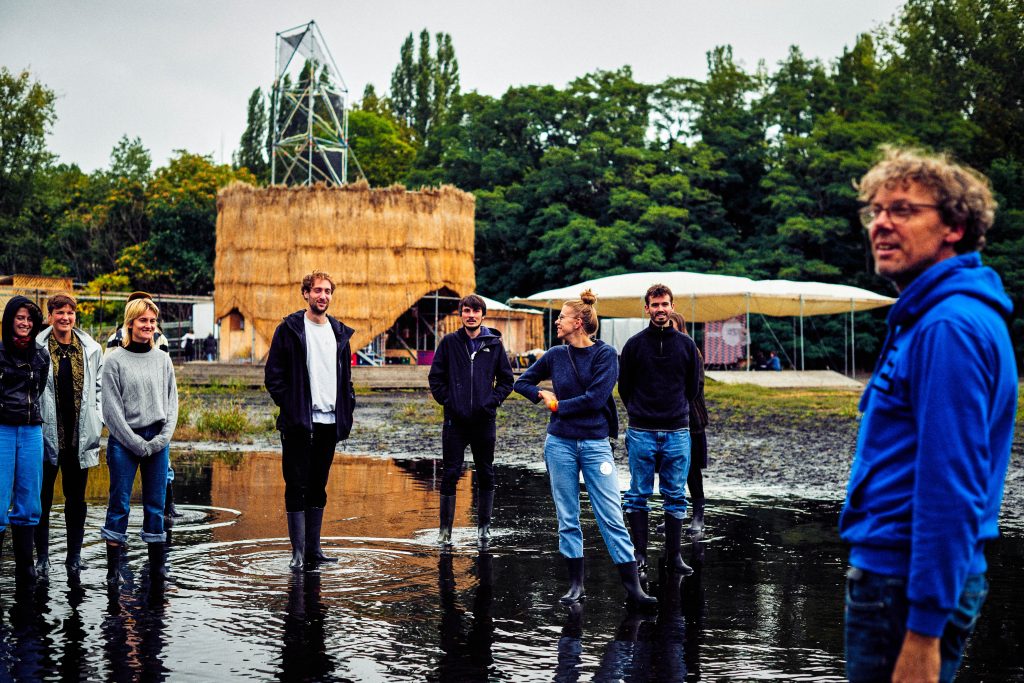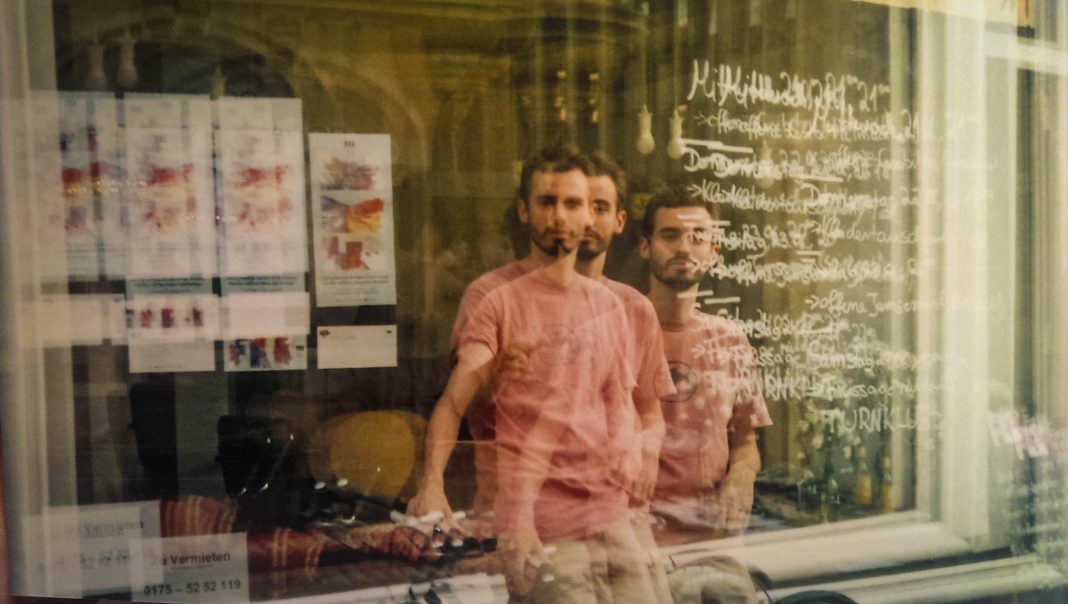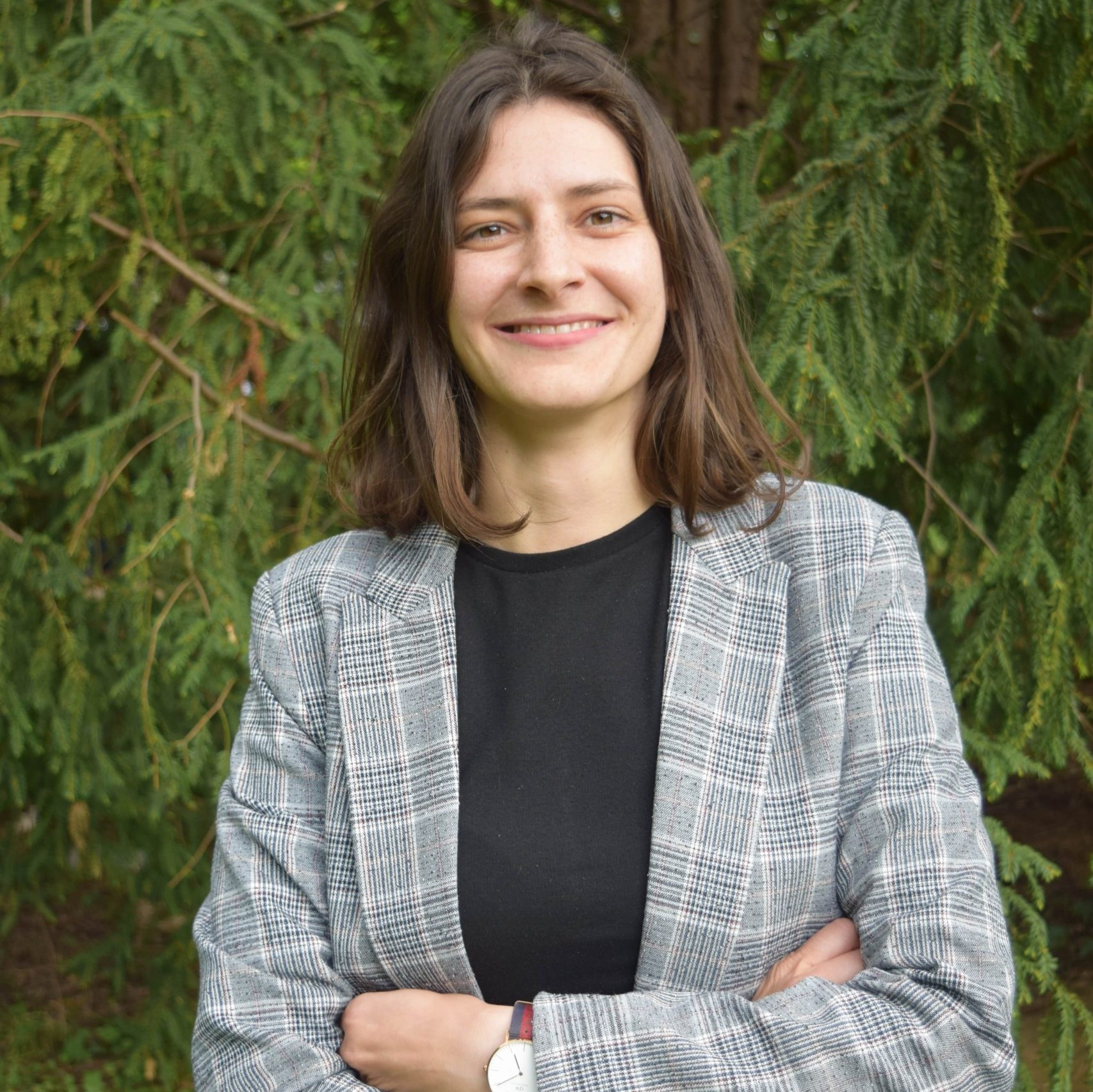The qualities that make a good Young Leader are eagerness to learn, openness to change, and commitment to improve the environment for everyone – with these words, an image of David Adam Braun is perfectly depicted. And what else makes this young and inquisitive mind a great future CityChanger? Read about it straight from the source itself.
Despite not having a ‘formal’ education in the field of urbanisation, David is very much interested in cities: their development, social aspects, urban innovations, and urban agriculture. Having travelled plenty, having met a lot of people from disparate parts of the world, and gaining knowledge along the way, what made this Young Leader interested in the cities in the first place?
Start with the Urbanism
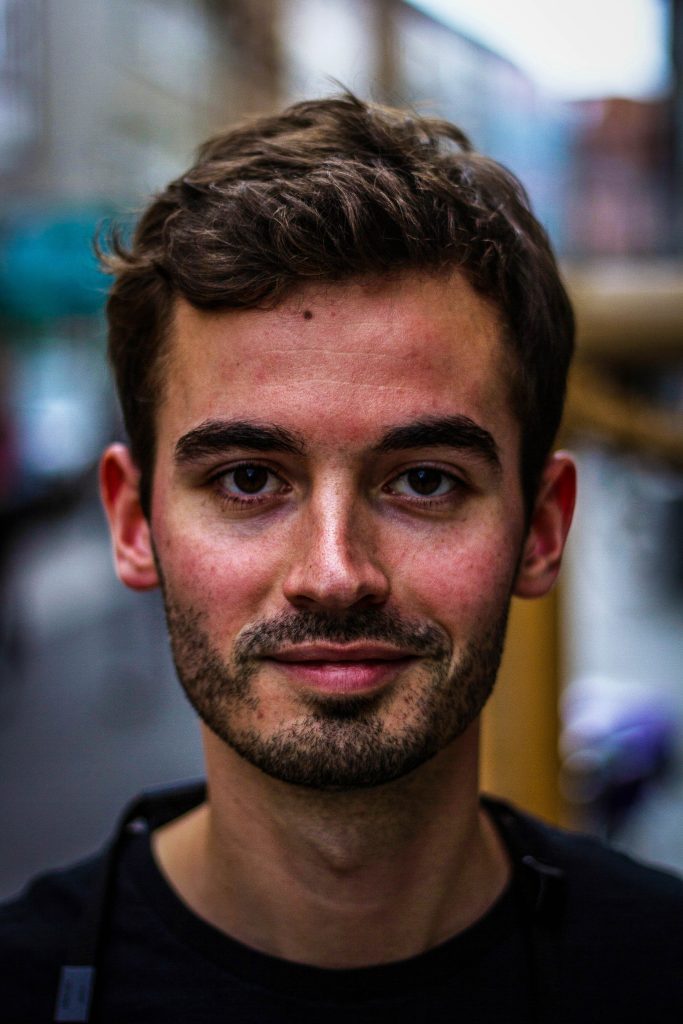
After finishing high school, David went to China for a year-long language course. “That’s where I got the feeling of self-sufficiency for the first time, and that I myself could change something about my surroundings,” reflects David.
With his gap year coming to an end, this Young Leader returned to Germany, to Göttingen, to pursue his studies in politics and economics. But the place he arrived in was very different from the one that he had imagined a students’ city would be – a rather settled community, no art or architecture that breathes life into the city; “so my start into urbanism was a bit of an egoistic one,” jokes David. “I didn’t want to live in a city where things like spontaneous pop-up galleries and young people shaping the city are not happening.” It was up to him to make Göttingen a city of his student’s vision.
This meant organising pop-up galleries, under the name FKK, developing the living-room festivals in collaboration with Peloton e.V., and ending up as a member of an initiative called Urbane Liga. This German network organisation was created for young city makers and financed by the German government. It serves as an advisory group to the Ministry on what changes the youth need and want to see in cities.
When it comes to his schooling, David’s bachelor’s studies in politics and economics were mainly to “understand the system” in order to be able to change it in the future. However, it was his wish all along to work in the sustainability and climate change field, so after its successful completion, he went on to pursue a master’s in Agricultural Economics.
An Abundance of Cities
One could call David a nomad. Born in Giessen, Germany, he moved to Wenzhou, China, moved back to Germany (Göttingen), went back to China (Chengdu), moved to Iran (Tehran) for a short period, in between stayed in Germany (Bonn), and now lives in Copenhagen, Denmark. David has lived in a fair share of cities.
From cities designed for cars in Tehran to big building blocks in China, moving a lot and seeing different city structures and cultures was another contributing factor to sparking this CityChanger’s interest in urbanism.
His favourite city? A small, cute, middle-aged place: Göttingen, “because it was my home during my studies.”
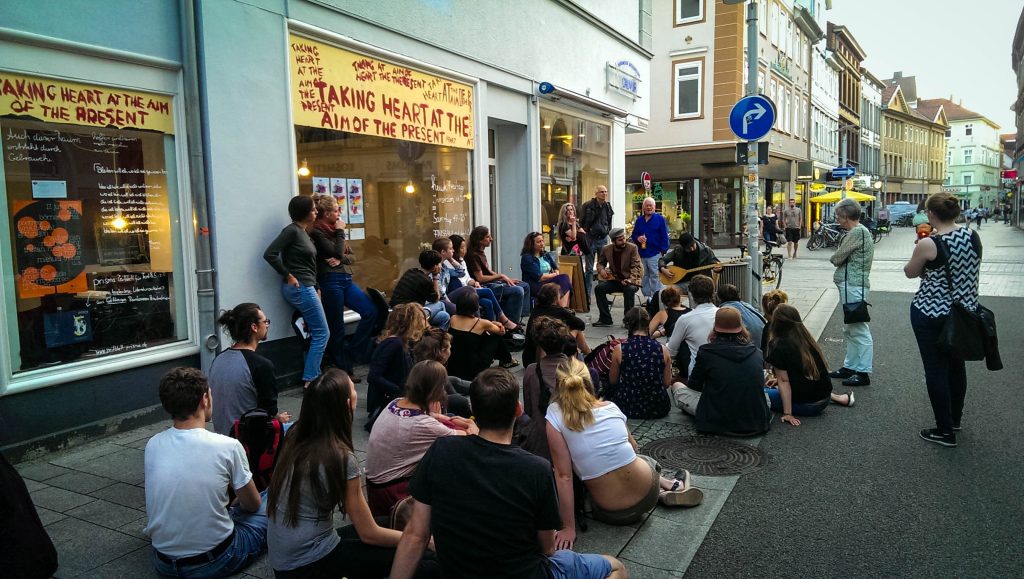
Sharing the Insights
With this impressive background and all these experiences, naturally, David has learnt a lot. His main take-aways?
- Keep an open eye and be open to opportunities: be open to new activities in your environment; everything could be an opportunity to learn and experience something exciting.
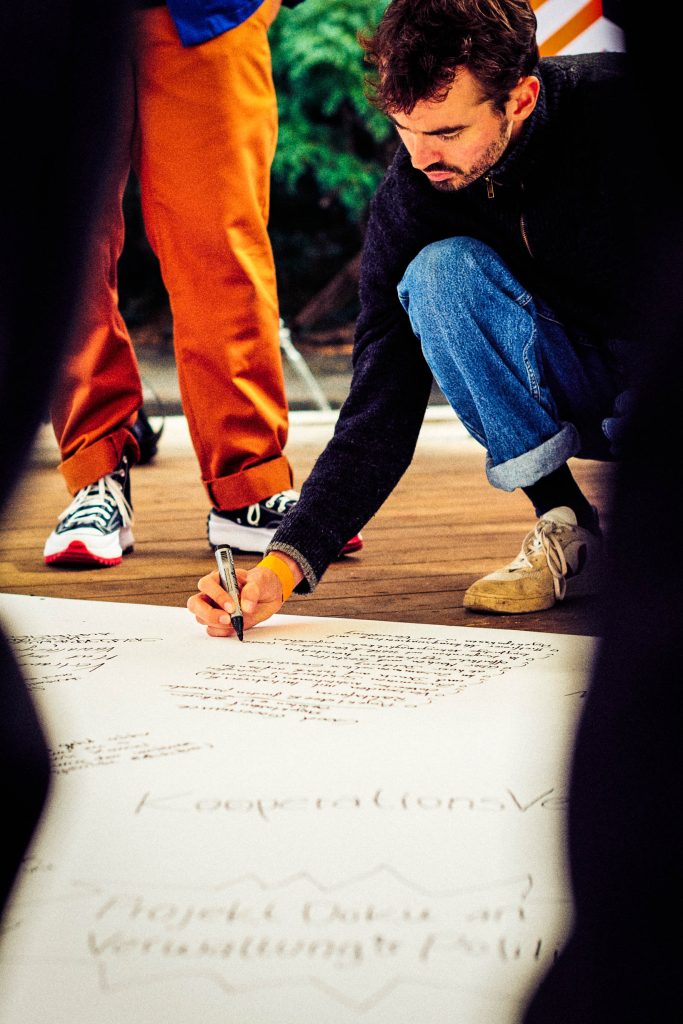
- Listen and communicate:
“I love meeting people and asking them all the questions I can because everyone has a good story. You can learn or find something interesting if you listen long enough and ask the right questions.”
- Make a home out of where you live: wherever you end up, find interesting places and interesting people, do something in the city, be a part of the city life.
It’s not always easy, though. Admitting to struggling with making decisions (don’t we all?), David in such moments finds comfort within his own family.
More often than not, his parents’ advice is to “just make a decision. It takes more time to think about it for a super long time than to just go with something that seems reasonable with the information you have.” Go with one decision, and “in the end, you’ll see what it was good for.” Each decision leads down its own path. If David hadn’t invested so much time, effort, and love into the urbanism field, for example, he wouldn’t have this story to tell, inspiring other CityChangers to make a difference.
“Everything, in the end, gives you something – you have to tweak it in a way that it makes sense for your own life.”
The World of the Urban Field
Urbanism is a magical field all of its own. With many possibilities, wonders, and areas open to improvement. Working with and in cities for more than six years, David is well aware of these elements. In fact, with his background in economics, the return on the infrastructure investment is what David finds most peculiar and not talked about enough.
When state money is invested into the improvement of a community, or let’s say a public infrastructure, the nearby buildings immediately profit: rents and property values go up. So who really benefits, monetarily? Most of the time it’s not the taxpayers, nor cities, but the money is usually “pocketed by the people who already own the apartments, who are probably already rich, and now they make more money, because of the public” investment, David points out.
Additionally, one of the biggest challenges David has noticed throughout his work in urbanism is also working with people, especially the younger and mostly mobile generation.
David points out Göttingen and the work they did there. They built up “this whole cultural initiative, and now most people left the city because it’s not a city where people want to stay.” It’s a students’ city, for students that come and go. Thus, “it’s a challenge also for administration because people are going to go away and the whole project might fall apart.”
However, the future does not look completely grim.
“I think there is a bit of understanding coming up now that there is a right for social and cultural initiatives to be a part of the city. And maybe in the future it’s not going to be the person with the most money who gets the property, but the person with the best idea.” This is the idea that excites David about the future of cities. It’s feeds from the Radicle Civics movement theory, where property rights would be different, where even if you own land (especially nature), you can’t just do with it as you please – instead, you would have to take care of it. “Because cities so far are just whoever has the money makes the move. And that’s not cool, it’s not good for the cities,” says David.
David is a possibilist. Yes, there is much work to be done, especially to realise his amiable goals (such as greener cities), but right now he is just excited about working towards making this future a reality. With Urbane Liga, they’re doing “research on trying to understand the touchpoints of city administration and city makers,” and that “whoever wants to do something, does it, and has the right to do it. Do-Ocracy style. It’s a city maker thing.”
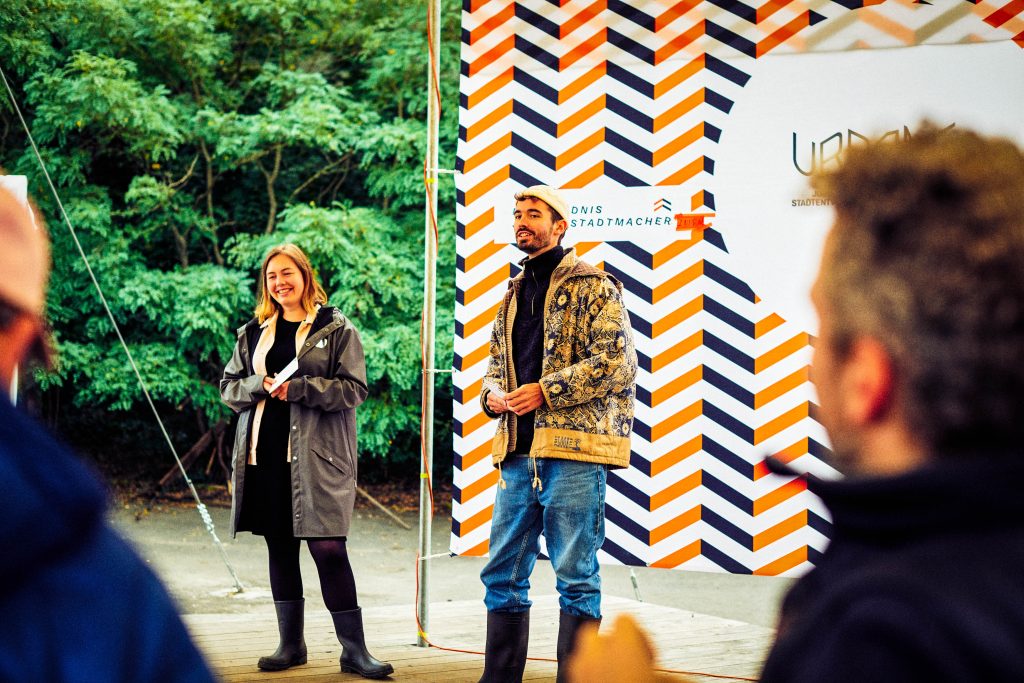
There’s also the quickly evolving urban agriculture part that has the potential of completely reshaping the city. “We sealed up so much in cities.” Urban cultivation allows us to unseal it, remarks this fan of agriculture.
Motivation
True, urbanism life seems like a hard life – although often rewarding, too. So, where does David find his motivation to keep going?
“I’m always curious for the new thing.”
David jokes that this is why he’ll probably never become an expert. But it is definitely a skill that is helping him gain more knowledge and broaden his horizons: “My curiosity feeds into becoming a more advanced person to have an argument with, and build up a good argumentation line to then maybe start speaking out for the things I find important in cities and in agriculture.”
As for right now, David is just trying to connect his different interests: economics, agriculture, cities, development, innovation, and in the future “hopefully make a difference somewhere, somehow.” So far, he enjoys not knowing what’s going to come up, but is happy in the process of gaining more knowledge and experiences from various fields.
With his brilliant, observant, and sharp mind, we have no doubt David is an impactful and inspirational Young Leader in the making.
